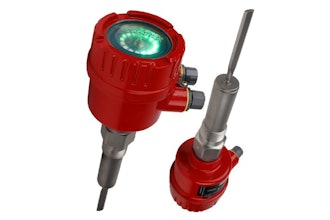In late March, Samsung Electronics America announced the company has recycled nearly 276k tons of electronics, diverting them from United States landfills. It was recognized by the United States Environmental Protection Agency for this action, as well as for building sustainably designed processes and products directly into its workflow. Here’s a look inside Samsung’s process of recycling a high volume of electronics waste, from Mark Newton, Director of Corporate Environmental Affairs.
MNET: What tips do you have for manufacturers looking to avoid e-waste?
Mark Newton: Manufacturers should strive to come up with ways to expand their products’ lifecycle. At Samsung we are constantly striving to improve our customer experience and extend the products’ useful life by offering unparalleled customer service. As an extension of this, we have expanded our network of authorized repair centers through our partnership with uBreakiFix, Best Buy and others.
MNET: Samsung Electronics America works with e-Stewards certified recyclers. Explain how this program works.
Mark Newton: E-Stewards certified recyclers are committed to upholding and implementing the highest standard of electronics recycling. This means the strictest data security standards, no exporting of hazardous waste to the developing world, and a prohibition on forced or prison labor. Samsung is proud to sit on the e-Stewards Leadership Council and provide input to the future and development of the standard.
MNET: Samsung was recognized by the EPA for “sustainably designed products and processes” as well as recycling. How is sustainability defined under this program?
Mark Newton: Samsung works diligently to ensure its customers have access to environmentally sustainable products and this effort has been recognized through attaining EPEAT and ENERGY STAR certifications, depending on the product. In addition, Samsung focuses and promotes its work on sustainable products by concentrating on the reduction of hazardous substances, increase of recycled content and improvements in energy efficiency. We believe that a holistically designed product can be good for consumers and the environment at all points of its lifecycle (manufacturing, use and disposition).
MNET: Does Samsung’s recycling program include use of e-waste in Samsung products as well as recycling waste from its processes?
Mark Newton: Yes, wherever possible we also utilize e-Stewards certified recycling partners for e-waste generated in our own processes.
MNET: How does Samsung measure its success when it comes to climate change mitigation across the company?
Mark Newton: As a producer of electronics, reducing waste and maximizing efficiency—both in terms of energy and material usage—is our highest priority and biggest opportunity to address climate change. The USEPA recognizes our commitment to energy efficient products and support of Sustainable Materials Management (SMM) by consistently recognizing Samsung as an ENERGY STAR “Partner of the Year” and “SMM Champion”. Furthermore, Samsung has committed to sourcing renewable energy for 100 percent of the energy used for all its factories, office buildings and operational facilities in the United States, Europe and China by 2020 and seeks to further increase its use of renewable energy around the world.























